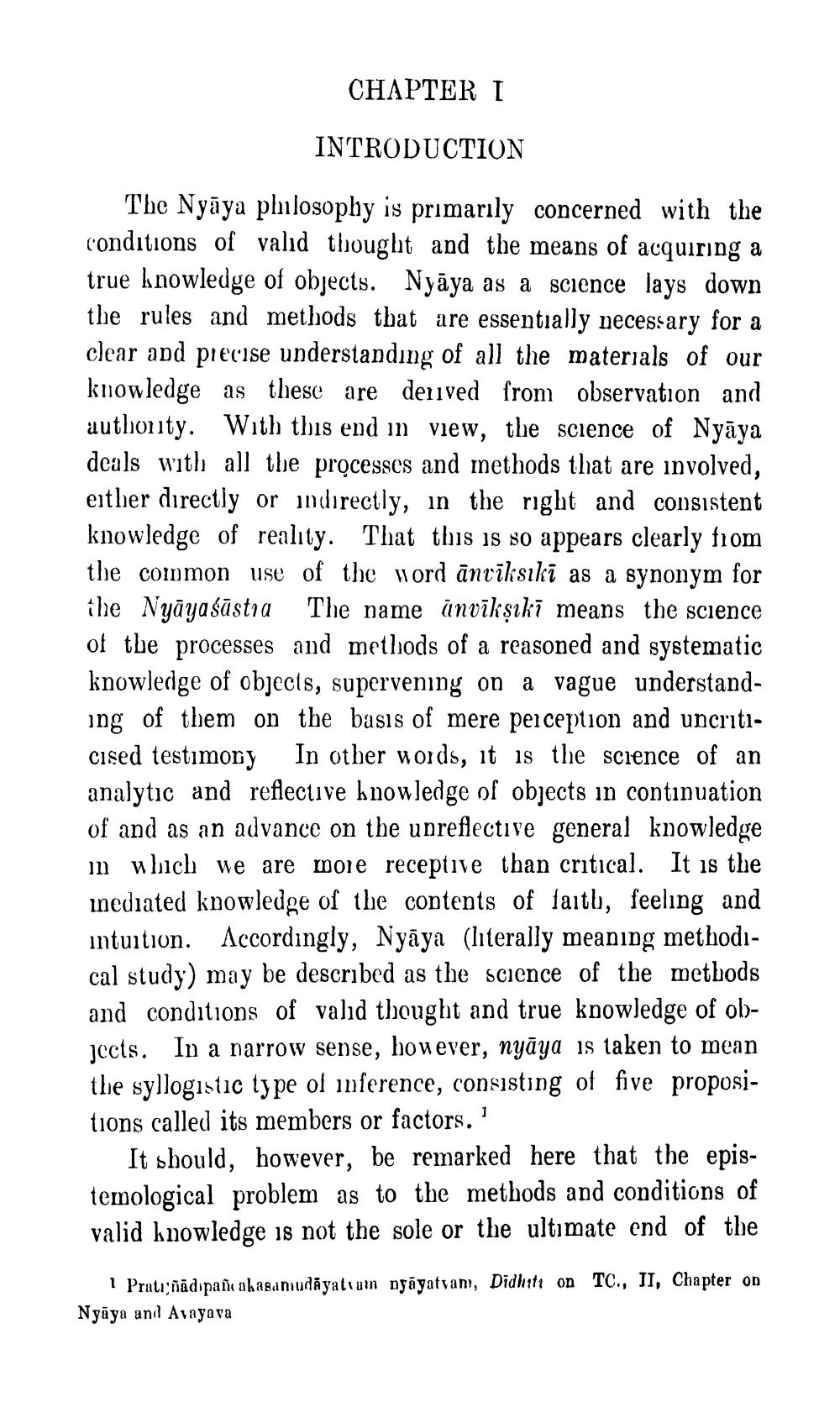________________
CHAPTER I
INTRODUCTION
The Nyāya philosophy is primarily concerned with the conditions of valid thought and the means of acquiring a true knowledge of objects. Nyāya as a science lays down the rules and methods that are essentially necessary for a clear and precise understanding of all the materials of our knowledge as these are derived from observation and authority. With this end in view, the science of Nyāya deals with all the processes and methods that are involved, either directly or indirectly, in the right and consistent knowledge of reality. That this is so appears clearly from the common use of the word ānrīksıkī as a synonym for the Nyāyaśāstia The name invīkşıki means the science of the processes and methods of a reasoned and systematic knowledge of objects, supervening on a vague understanding of them on the basis of mere perception and uncriticised testimony In other words, it is the science of an analytic and reflective hnowledge of objects in continuation of and as an advance on the unreflective general knowledge in which we are more receptive than critical. It is the inediated knowledge of the contents of faith, feeling and intuition. Accordingly, Nyāya (literally meaning methodıcal study) may be described as the science of the methods and conditions of valid thought and true knowledge of objects. In a narrow sense, however, nyāya is taken to mean the syllogistic type of mference, consisting of five propositions called its members or factors.'
It should, however, be remarked here that the epistemological problem as to the methods and conditions of valid knowledge is not the sole or the ultimate end of the
TC., II, Chapter on
? Prati ñādıpañe akaganudāyatram ngāyatvan, Didhite on Nyāya ani Avayava




